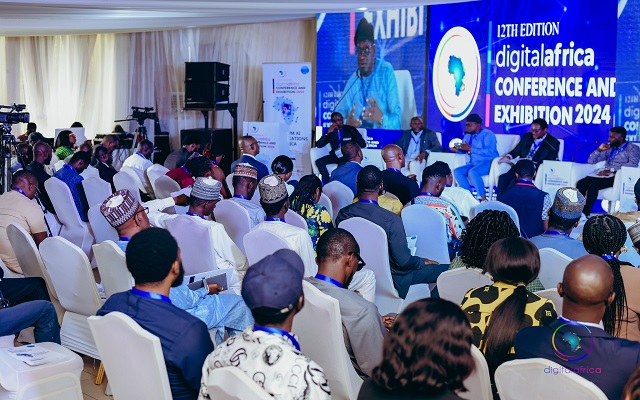News Highlights:
- DACE 2025 is Africa’s bold push for Digital Sovereignty and Global AI Leadership
- The 2-day Conference is a Continental platform for innovation, policy, and youth empowerment
Africa’s digital destiny will on October 28-29, 2025, take centre stage at the 13th Edition of the Digital Africa Conference & Exhibition (DACE), to be held at Merit House, Abuja, under the theme: “Sovereign Intelligence: Africa’s Voice in the Global Digital Order.”
Digital TimesNG reports that at a time when artificial intelligence (AI), smart systems, and data technologies are reshaping societies, economies, and governance structures worldwide, DACE 2025 is sounding a clarion call: ‘Africa must lead, not lag in this transformation.’
Organisers say the aim is to move beyond consumption and dependency, and instead position the continent as a proactive contributor to global digital norms and governance.
“This year’s conference is about shifting from passive adoption to active leadership,” said Dr. Evans Woherem, Chairman, Digital Africa Consult, organisers of the event. “Sovereign Intelligence is more than a concept, it’s a movement to ensure that Africa controls its digital resources, designs its own ethical frameworks, and asserts its voice in shaping global technology norms.”
A Defining Moment for Africa’s Digital Future
Woherem said the conference will serve as a high-level, cross-sectoral platform aimed at positioning Africa as a co-author of global AI governance standards, rather than a mere recipient, assuring that the conversations are expected to align closely with the African Union’s Continental AI Strategy, advocating for a united, self-determined digital ecosystem across the continent.
“The urgency of this moment cannot be overstated. As the world builds its digital infrastructure, much of the technology consumed in Africa is still imported, foreign-owned, and culturally disconnected. African data is often stored offshore, local languages and cultural contexts remain invisible in AI systems, and African experts are frequently excluded from global decision-making tables.
“This must change. Digital Africa 2025 is about taking control of our data, our narratives, and our technological development. Africa must move from being users of foreign systems to creators of our own,” Woherem added.
Key Objectives of DACE 2025
One of the primary objectives of this year’s event is to advocate for African ownership of digital infrastructure, data policies, and technology standards. Organizers hope to inspire African leaders and institutions to say yes to innovation and regulation built by Africans, for Africans.
Another major focus will be amplifying African voices on the global stage. This involves not only advocating for inclusion in international policy dialogues but also ensuring that African values, cultures, and wisdom shape the design and deployment of AI systems worldwide.
“The conference will also spotlight homegrown innovation. Startups and developers from across the continent will showcase digital solutions addressing local challenges in healthcare, agriculture, finance, and education. These practical examples will reinforce the message that Africa is already generating intelligent, scalable answers to complex problems,” said Nneoma Ofodile, General Manager, Digital Africa.
Empowering young Africans through digital skills, research opportunities, and leadership training is another key goal of the gathering. Organizers are committed to fostering a new generation of African tech leaders who can confidently shape global digital trends from a place of knowledge and ownership.
Regional cooperation will be front and centre, as DACE encourages cross-border collaboration on harmonizing laws, sharing infrastructure, and building integrated digital ecosystems. Sessions will explore how African nations can jointly develop policies and platforms that reflect the continent’s unique needs and aspirations.
While global partnerships will also be on the agenda, the conference aims to deepen Africa’s engagement with international institutions such as UNESCO, the UN, and the OECD, not as passive participants but as co-authors of global standards for ethical and inclusive AI.
Nneoma said that throughout the two-day event, attendees can expect high-level discussions on digital law, tech sovereignty, and innovation policy, alongside practical workshops for developers, educators, and youth. Innovation showcases will highlight the work of African tech hubs, while strategy sessions will promote cross-country digital alignment.
At the close of the event, a concrete roadmap is expected to emerge—outlining actionable steps toward achieving digital sovereignty across the continent. The conference will also aim to strengthen networks among African innovators, regulators, and thinkers, while increasing the visibility of African insights in international technology policy.
Above all, Digital Africa 2025 is about reclaiming agency. “This isn’t just a technology conversation,” Nneoma emphasized. “It’s about power, voice, and independence. Africa must not only catch up; Africa must lead.”
As preparations intensify, DACE 2025 is inviting visionary organizations, sponsors, and partners to join the mission of building a digitally sovereign and inclusive Africa.

